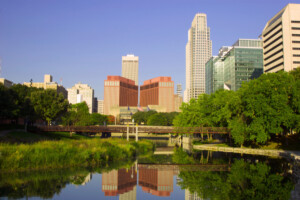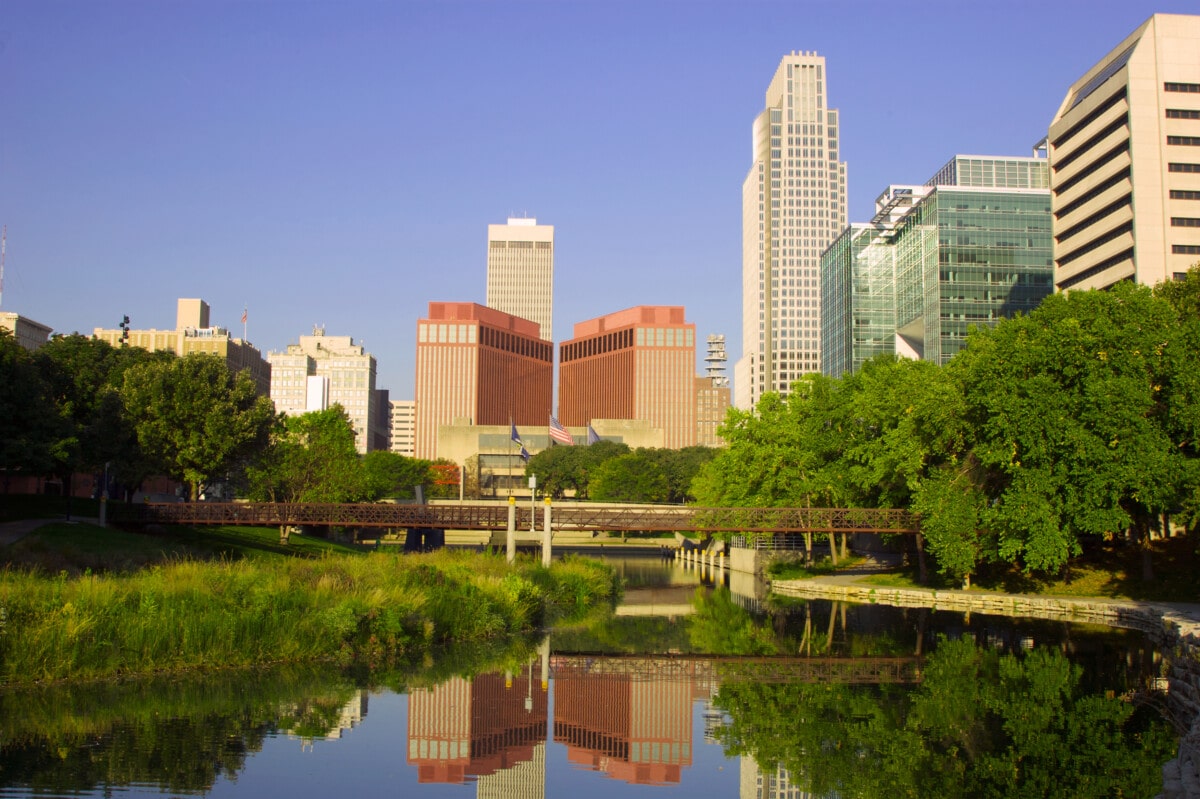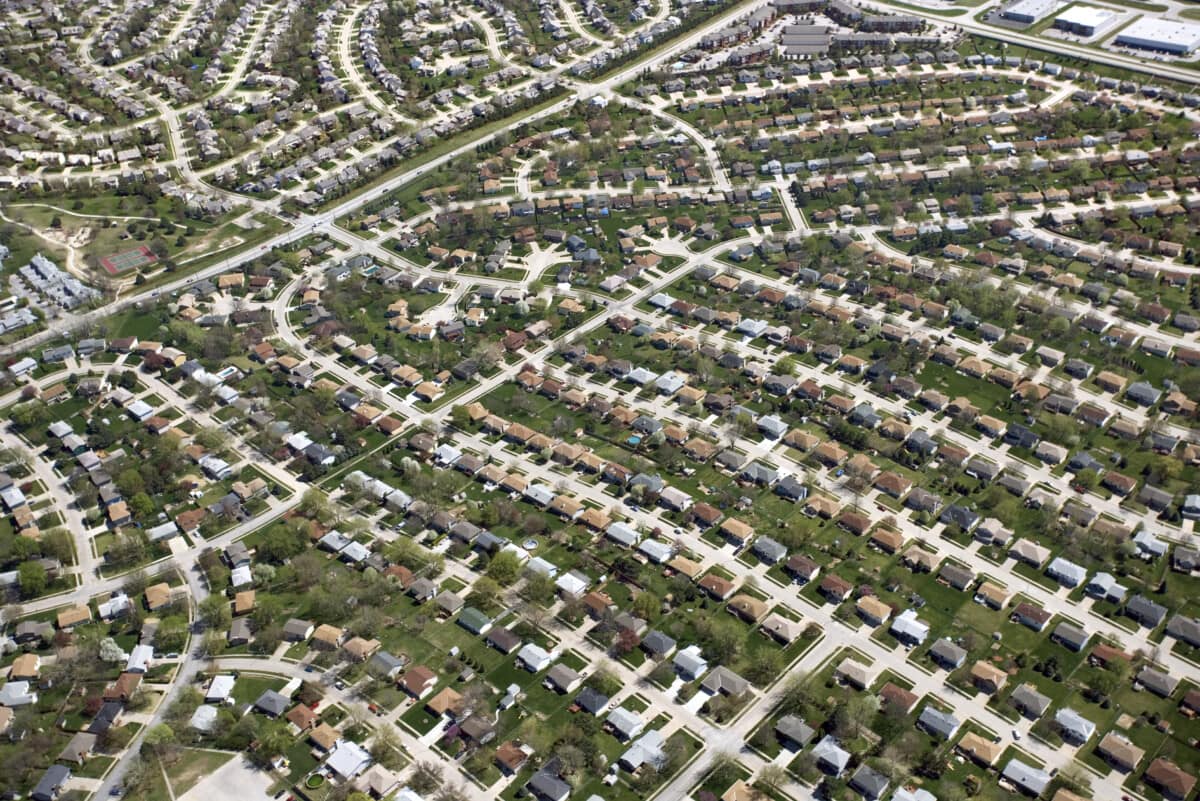
Considering moving to Omaha? Before you make your decision, it’s essential to weigh the pros and cons of living in this vibrant Midwestern city. Omaha, NE, offers a unique blend of opportunities and challenges that can greatly impact your day-to-day life. In this Redfin article, we will explore 10 key pros and cons of living in Omaha, covering aspects such as the job market, cost of living, cultural scene, and more. Whether you’re already eyeing homes for sale in Omaha or you’re still considering the move – we’ll help you make an informed choice about whether Omaha is the right place for you. Let’s get started!
Welcome to the bustling heartland city of Omaha, where vibrant community spirit, affordable living, and a range of housing options await.

Pros of living in Omaha
1. Affordable cost of living
One of the most appealing aspects of Omaha is its lower cost of living. Housing, groceries, and overall expenses are 7% lower than the national average. This means your hard-earned money can stretch further, providing you with a comfortable and financially stable lifestyle.
Omaha boasts notably affordable housing prices, offering a wide range of options to suit different preferences and budgets. In fact, housing in Omaha is approximately 16% lower than the national average, with a median sales price of $270,500. For those looking to rent, the average rent for an apartment in Omaha, ranges between $970 and $1,547 in 2023.
2. Strong job market
Another top reason for moving to Omaha is the robust job market.. With a diverse economy and the presence of major corporations, the city offers a wide range of job options across various industries. Whether you’re in finance, technology, healthcare, or other sectors, Omaha provides a fertile ground for professional growth and advancement. As of 2020, companies such as Offutt Air Force Base, Nebraska Medicine, First National Bank, and PayPal ranked within the 50 Biggest Employers in Omaha.

3. Natural beauty
Nature lovers and outdoor enthusiasts will find solace in Omaha’s natural beauty. The city has picturesque parks, scenic trails, and the nearby Missouri River. Immerse yourself in the tranquility of places like Lauritzen Gardens or embark on hiking adventures in Fontenelle Forest. Omaha’s green spaces provide a refreshing escape and opportunities for recreational activities all year round.
4. Delicious cuisine
Prepare your taste buds for a culinary journey as you step through the “Gateway to the West.” From world-class steakhouses to cozy family-owned restaurants, Omaha’s dining scene is a paradise for food lovers. But the flavors don’t stop at steaks–diverse culinary offerings, including farm-to-table establishments, international cuisines, and creative fusion dishes, ensure that there’s something to satisfy every palate.

5. Events and festivals
Omaha knows how to celebrate life! The city hosts many events and festivals annually, creating a vibrant atmosphere and fostering a strong sense of community. Experience the excitement of the College World Series, immerse yourself in art and culture during the Omaha Summer Arts Festival, or celebrate the city’s diverse heritage at the Native Omaha Days.
Cons of living in Omaha
1. Limited entertainment options
While Omaha offers a vibrant events and festival scene, it may not boast the same entertainment options as larger cities. Nightlife and live performances may be more limited compared to bustling metropolises. However, Omaha’s charm lies in its ability to provide a more intimate and accessible entertainment experience, with theaters, live music venues, and local events offering unique and memorable experiences.
2. Harsh winters
Winter in Omaha can be challenging for those unaccustomed to cold and snowy conditions. The temperature drops, and snow blankets the city, creating a winter wonderland that can present some difficulties. The frigid temperatures require extra layers of clothing, and navigating icy roads and sidewalks can be more demanding.

3. Limited public transportation
Omaha’s public transportation system may not be as extensive as in larger cities. With a 24 Transit Score, reliance on private vehicles is more common, and commuters may face challenges if they prefer public transit.
4. Urban sprawl
Like many growing cities, Omaha has experienced urban sprawl, resulting in longer commutes and potential disconnection between neighborhoods. However, this expansion has also led to the development of new communities and suburban areas with distinct charms.

5. Slow pace of change
Omaha is often characterized by a more deliberate and measured approach to change compared to some larger, more progressive cities. While this can be seen as a disadvantage for those seeking rapid advancements and cutting-edge developments, it also fosters a sense of stability and preservation of tradition.
Is Omaha a good place to live? The bottom line:
With its affordable cost of living and a strong job market boasting opportunities across diverse industries, Omaha offers the potential for a comfortable and fulfilling lifestyle. It’s also important to consider the city’s limitations, such as the relatively limited entertainment options, the challenge of harsh winters, and the less extensive public transportation system.
Ultimately, the decision of whether to live in Omaha depends on individual preferences and priorities. By weighing the discussed pros and cons, you can make an informed choice that aligns with your preferences, needs, and aspirations.
The post Is Omaha a Good Place To Live? 10 Pros and Cons to Consider appeared first on Redfin | Real Estate Tips for Home Buying, Selling & More.
